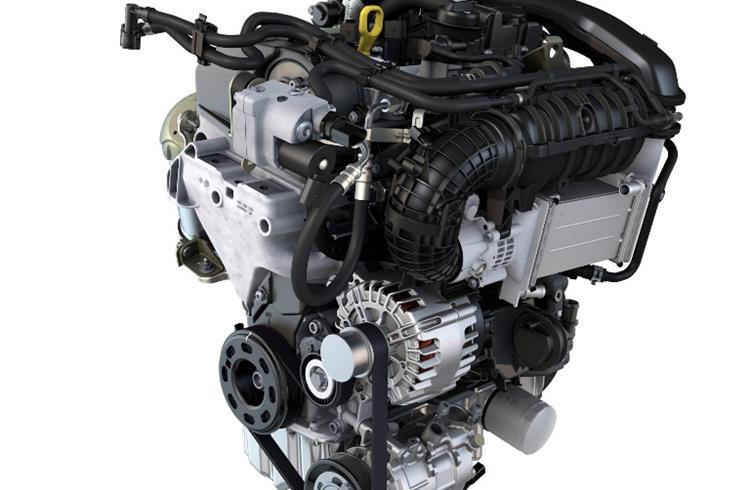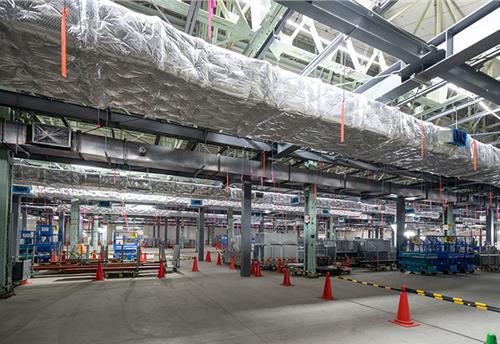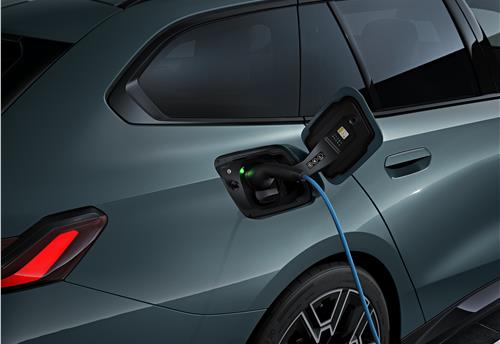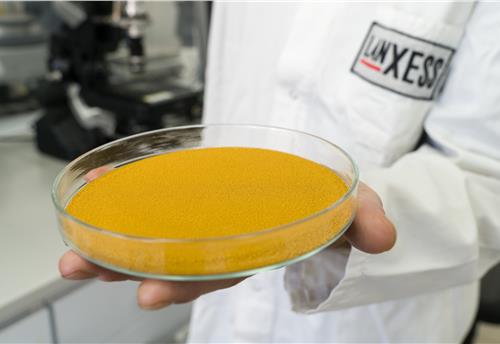Volkswagen premieres three new engines at the Vienna Symposium
Volkswagen presents progressive hybrid, natural gas and diesel systems at the Vienna Motor Symposium.
With the new state-of-the-art petrol, diesel and natural gas engines, Volkswagen is looking to meet the CO2 fleet emissions target of 95g/km as prescribed in the EU as of 2020.
As part of the Vienna Symposium 2018, Volkswagen has debuted its affordable mild hybrid drives with 48V technology, new high-tech diesel engines that will also be available as hybrid variants and a new natural gas drive.
World premiere I: Towards affordable hybrid
The new drive system is a 48V mild hybrid. It will be initially on the market for the next Golf generation. With the new 48V technology, Volkswagen aims to make hybrid drives affordable to an extremely large clientèle. Volkswagen claims that the drive systems drastically reduce consumption and emissions while at the same time offering extra dynamism and comfort with an electric boost function and exceptional drive performance. Volkswagen will gradually extend the electrification of conventional drives to the entire fleet.
World premiere II: For efficient natural gas engines
Another technical highlight in Vienna was the new 1.5 TGI Evo natural gas engine. The 1.5-litre direct injector, fitted with VTG forced induction (latest-generation turbochargers with variable turbine geometry), is based on the 1.5 TSI ACT engine. Like its counterpart, the equally powerful natural gas engine, at 96 kW/130 hp, uses TSI/TGI Miller combustion process. Its stated objective is to further increase the volume of natural gas engines operating efficiently and largely without generating particle emissions. Moreover, the TGI petrol engines can be run on e-gas – renewable CNG that is based on methane obtained from wind, solar, hydropower or biomass power generation processes.
Production of the 1.5 TGI Evo engine will start this year. With an estimated average consumption of 3.5 kg/100 km (CNG) in the current Golf featuring dual clutch gearbox (DSG), the company claims that the turbocharged engine will be as efficient as it will be cost-effective to run. It further claims that it gives a range of 490 km in CNG mode, which is further extended by an additional 190 km through the automatic switch to petrol mode (all data has been calculated on the basis of the NEDC cycle). In addition to its efficiency, the engine offers 200 Nm of torque at 1,400 rpm (up to 4,500 rpm).
World premiere III: Four-cylinder diesel with hybrid variants
Volkswagen demonstrated the completely new EA288 Evo product line 2.0 litre TDI engine development. For the first time at Volkswagen, the Group's TDI four-cylinder engines will also be available in conjunction with hybrid systems. The EA288 Evo will already start as a mild hybrid drive with 12V belt starter generator on its first use. In conjunction with a lithium-ion battery, the mild hybrid system in the TDI engines is claimed to produce extremely low emissions in all driving cycles, thus, meeting current and future emission stipulations for WLTP/RDE certification. The output ranges from 100 kW/136 hp to 150 kW/204 hp. The TDI engines developed by Volkswagen will initially be used at Audi in vehicles with the longitudinally installed drivetrain. The new TDI engines will also be used transversely in the MQB (modular transverse matrix) vehicles of Volkswagen and other Group brands in the future.
As per the statement from Volkswagen, exhaust after-treatment components – including diesel particulate filter (DPF) and SCR components (NOx treatment using selective catalytic reduction) – have been re-dimensioned and improved in terms of their effect and ageing stability thus, reducing frictional losses, heat losses and engine weight. Volkswagen has also cut the CO₂ emissions of EA288 Evo engines by up to 10 g/km compared with the predecessor generation. Based on these, they have recorded values below the limits laid down in current emission legislation while increasing the power and the torque figures by 9 percent.
RELATED ARTICLES
Nissan shows in-construction all-solid-state battery pilot line in Japan
Under the Nissan Ambition 2030 long-term vision, Nissan aims to launch EVs equipped with the batteries by fiscal year 20...
BMW Group sells 82,700 BEVs in Q1 2024, sees growth across all key markets
The company has delivered a total of 82,700 fully-electric BMW, Mini and Rolls-Royce vehicles to customers worldwide, up...
Lanxess and IBU-tec to develop iron oxides for LFP EV batteries
Collaboration aims to improve performance of LFP cathode material; reduced carbon footprint of batteries through use of ...





 By Autocar Pro News Desk
By Autocar Pro News Desk
 30 Apr 2018
30 Apr 2018
 4266 Views
4266 Views









